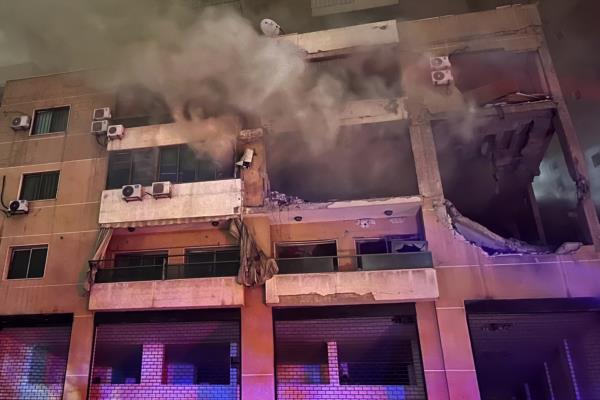
Explosions in Iran and Rising Tensions in the Middle East Prompt Fears of Retaliation and Wider Conflict
At a ceremony honoring the late Iranian General Hassan Soleimani, two powerful explosions rocked Iran, resulting in the deaths of over 100 people. Iranian leadership, including the Supreme Leader and President, promptly blamed Israel for the attack. President Hassan Rouhani issued a stern warning to Israel, stating that they would face severe consequences for their alleged crimes. This follows the recent assassination of senior Hamas leader Salah Arori in Beirut, also blamed on Israel. Hezbollah's leader has vowed to retaliate and punish those responsible for Arori's death.
The escalating tensions in the region have raised concerns of a broader conflict that could extend beyond the borders of Israel and Gaza. Iran's accusation against Israel has yet to be substantiated, as both the United States and Israel have denied involvement, with the former labeling the incident as a terror attack. The lack of an official stance from Israel has left room for Iran to level accusations.



The increased aggression follows a series of recent events, such as the killing of an Iranian general in Syria, which Iran attributes to Israeli airstrikes. This has further fueled Iran's belief that Israel is deliberately provoking them. While Iran has been cautious about getting involved in the conflict in Gaza, the recent attack on their soil could potentially push hardliners within the Iranian Revolutionary Guard Corps (IRGC) to advocate for a forceful response.
The death toll from the explosions has sparked concerns of potential retaliation from Iran. However, it should be noted that Israeli operations have typically been precise and targeted, unlike the indiscriminate attack witnessed in Iran. Other groups known for such indiscriminate attacks include Mujahedin al-Khalq, Jandula, and the Islamic State.
Meanwhile, the situation in the Middle East remains critical, with tensions flaring in Lebanon, Yemen, and the ongoing conflict between Israel and Hamas in Gaza. In the midst of these escalating conflicts, attention has also turned to China. In a recent Wall Street Journal op-ed, it is highlighted that China is gearing up for a potential war with the United States, while the U.S. is not adequately prepared for such a scenario. China's increased military spending compared to the United States has raised concerns about its intentions and the delicate state of international security.
As the region faces multiple conflicts, including the Middle East and potential escalations with China, the United States finds itself in a precarious position. It must navigate these challenges while also contending with shortages of support, including munitions and supplies, due to its involvement in various conflicts.
The international community anxiously watches these developments, hoping for a de-escalation of tensions and a halt to the potential spiral towards a wider conflict that could have far-reaching consequences.







